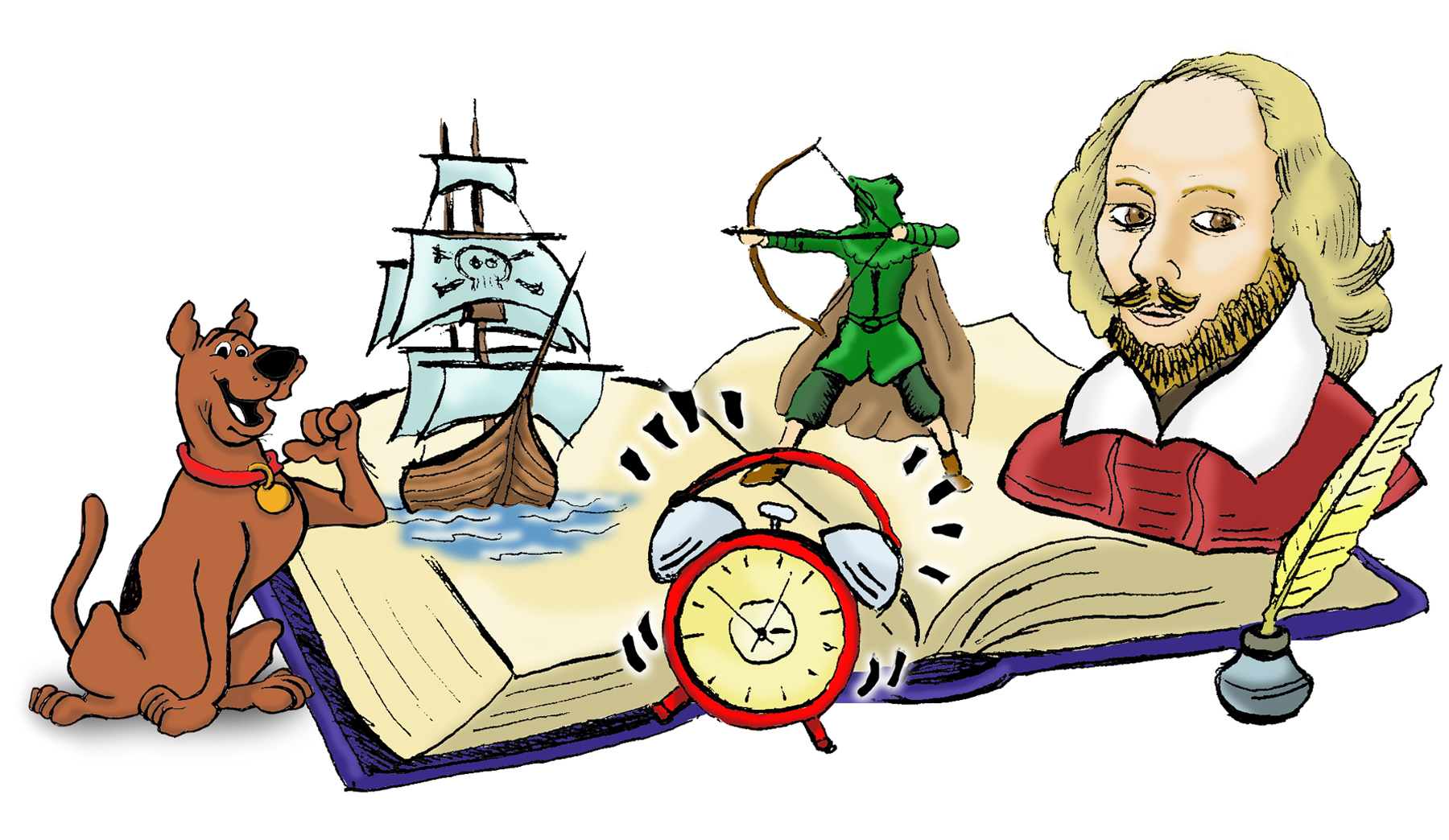FROM THE CONVENTIONAL TO THE WHIMSICAL...
Although you need to use creative techniques in an original way, like the use of similes and metaphors, in narrative and persuasive writing for school, and, as a general rule, though it is, for the most part, best to avoid idioms for English in school, idioms form part of our everyday lives.

Idioms, sayings and proverbs (many of which were originally created by William Shakespeare) such as, to have ‘a heart of gold’ and to be ‘a laughing stock’ are still, over 400 years later, part of colloquial English. Using interesting, whimsical words also makes your communication in English more natural, even if you don’t use them for your academic studies. Idioms spice up our speech and create colourful conversation.
We are, perhaps nostalgically, perhaps cautiously and perhaps unknowingly, attached to old, reliable words in the English language. There is nothing at all wrong with them; they are reliable and extremely useful: disorganised, nonsense, confusion, deceit...
However, it is easy to forget how much we can spice up our lives and enhance our speech with a touch of the whimsical. It does depend on our age, though, as to which ones we are familiar with and which ones we use, but we are never too old or too young to learn, use and love these words that make our English language so truly special.
The Welsh Medium curriculum, so Welsh as a First Language, and, to an extent, Welsh as a Second Language, as well as French, Spanish and German A level speaking exams, all make a point of expecting learners to learn and use idioms, sayings and proverbs. In the English curriculum, idioms tend to be avoided as more originality is encouraged instead.
Idiomatic, colloquial words, phrases and terms in English are, in contrast, more commonly acquired through life experience. Many young people may not necessarily know them, as this type of knowledge and language seems to be acquired between the ages of 10 and 60, so don’t fret if you are a youngster and feel that you don’t know all or any of them. You have all of your adult life to pick them up!
Although not generally part of school writing, they can actually spice up our lives as in our general conversation. I think so, anyway...
I, for one, use this one pretty much every day - on departing from any place, I make a point of checking that I have all of my ‘bits and bobs’. Likewise, on finding a penny on the ground (I have even been known to do this within the pandemonium of Piccadilly Circus), I have to stop and say to myself, “See a penny, pick it up, all the day, you have good luck.” Every time I write an official/formal letter, I take the time to say, “Never use sincerely with Sir,” and every time I have to check the days of each month, I recite, “30 days hath September, April, June and November...” I can stop there as, taking February into account, I know the rest are 31!
On to the world of whimsical words, guaranteed to bring a smile to anyone’s face and joy to anyone’s day, rather than ‘disorganised’, how about ‘willy-nilly’ or ‘higgledey-piggledey’? Instead of the already perhaps semi-whimsical ‘nonsense’, do ‘gobbledegook’, ‘malarkey’ or ‘balderdash’ sound more cheerful?
I am sure that, as opposed to the simple word, ‘confused’, which does perhaps have negative connotations, wouldn’t you be happier to describe yourself as ‘flummoxed’ or ‘flabbergasted’?
Finally, the word ‘deceit’ can easily be replaced with a few words, including the wonderful-sounding 'subterfuge' or 'skulduggery', conveying imagery linked to the era of pirates marauding the seas or Robin Hood protecting the forests of Nottingham.
Two others are: to be ‘in cahoots’ with someone and to ‘hoodwink’ someone.
Regardless of one’s political leaning and, in the weeks leading up to the 2019 Christmas election, I read just tonight in an article in The Guardian - “Brexit party ‘in cahoots’ with Tories” and certain politicians allegedy “trying to hoodwink the public.”
To bring my article shortly to a close, our current PM, Boris Johnson, has perhaps even created a brand new word, just today, linked to the film, ‘Groundhog Day', the ‘groundhoggery’ of Brexit. If Boris can create this word out of the blue, in a world where we have new terms like: 'chillax', not having a 'Scooby' and 'bromance', anything is possible and the world of neologisms (newly created words) is, very clearly, ‘our’ oyster!